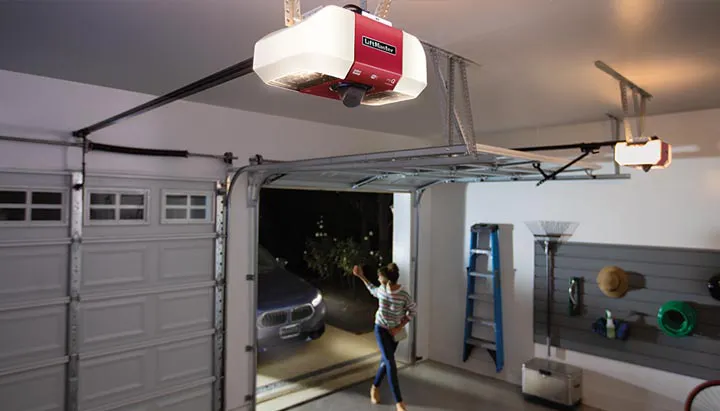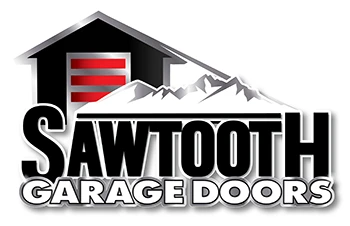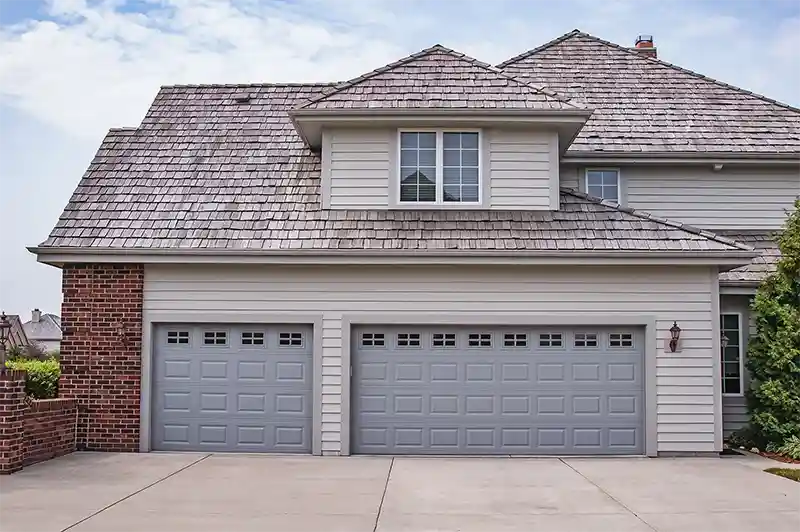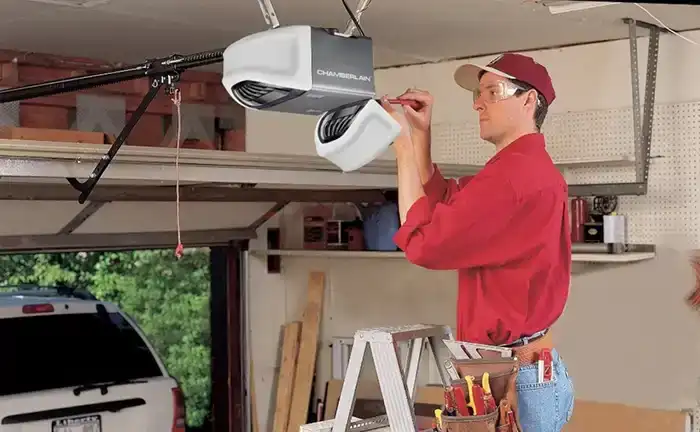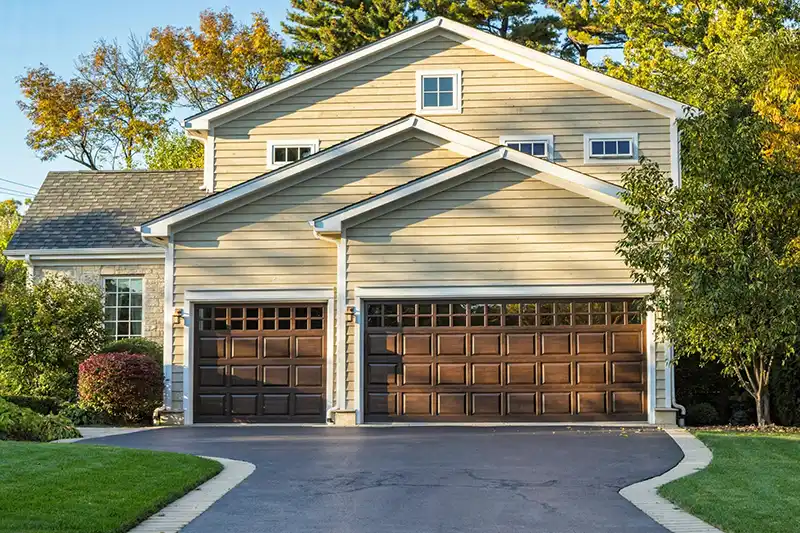Eagle Garage Door Repair
When Eagle customers are searching for local garage door repair, Sawtooth Garage Doors is available 24/7 to provide the high quality service they count on. Our crew of garage door repair technicians have the skills and knowledge to provide garage door service that will get you up and running again in no time.
For garage door repair Eagle customers trust, can count on fast, friendly service from a locally owned and operated company who live in the area.
Garage Door Repair Services
- Spring Replacement
- Cable Repair and Replacement
- Garage Door Opener Repair
- Roller Replacement
- Track Adjustment and Repair
- Panel Replacement
- Weather Seal Replacement
- Remote Control and Keypad Repair
- Sensor Alignment and Repair
- Garage Door Noise Reduction
- Hinge Replacement
- Garage Door Balance Adjustment
- Motor Replacement
- Emergency Garage Door Repair Services
- Inspection and Preventative Maintenance
- Full Garage Door Replacement and Installation
“Garage Door Repair Eagle”
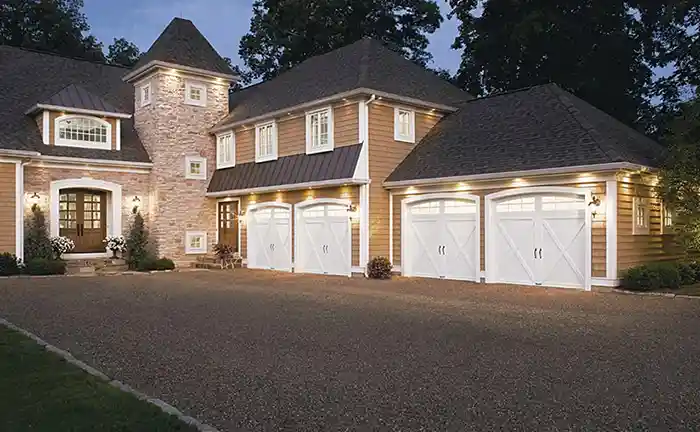
Garage Door Installation Eagle

Sawtooth Garage Doors offers professional garage door installation services, delivering high-quality, durable doors that enhance security and curb appeal. Our expert team installs a variety of garage doors tailored to your needs, ensuring smooth operation and long-lasting performance. We provide reliable service with precision and attention to detail.
- Residential garage door installation
- Custom garage doors
- Insulated garage doors
- Steel garage door installation
- Wood garage door
- Carriage-style garage door installation
- Smart garage door system installation
- Energy-efficient garage door installation
“Garage Door Installation Near Me”
Garage Door Spring Repair
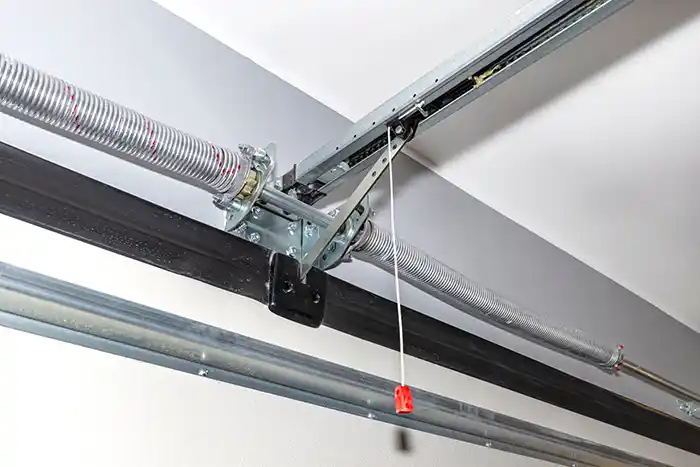
Sawtooth Garage Doors specializes in expert garage door spring repair services, ensuring smooth and safe operation. Our experienced technicians quickly diagnose and fix broken or worn-out springs, restoring your garage door’s functionality. We provide garage door repair Eagle residents count on using high-quality replacement parts for lasting performance and reliable.
- Broken garage door spring repair
- Torsion spring replacement
- Extension spring repair
- Garage door spring adjustment
- High-cycle spring installation
- Garage door balance check
- Spring lubrication service
- Safety inspection for garage door springs
- Heavy-duty spring installation
- Emergency garage door spring repair
FAQ – Garage Door Springs
Replacing a garage door spring typically costs between $100 and $300, depending on several factors. Here’s a detailed breakdown of what influences the cost:
- Type of Spring:
- Torsion Springs: These are more expensive and usually cost between $150 and $250 for replacement.
- Extension Springs: These are generally less expensive, ranging from $100 to $150.
- Labor Costs:
- Labor costs can vary but typically add $50 to $100 to the total cost.
- Quality of Parts:
- Higher-quality springs that last longer will cost more. Basic springs are cheaper, but premium ones with a longer lifespan can be up to 50% more expensive.
- Service Call Fee:
- Many companies charge a service call fee, which ranges from $50 to $100. This fee is often included in the total replacement cost quoted by the technician.
- Additional Repairs:
- If other parts of the garage door system are worn or damaged, additional repairs may increase the overall cost.
Average Cost Summary
- Single Spring Replacement: $100 to $200
- Dual Spring Replacement: $150 to $300
Example Pricing
- Extension Spring Replacement: $100 – $150 (parts and labor)
- Torsion Spring Replacement: $150 – $250 (parts and labor)
Garage door springs play a crucial role in facilitating the lifting and control of garage doors. Given that garage doors typically weigh over 150lbs, it can be challenging to manually lift them or operate them with an opener without some extra assistance. To address this, two types of springs are commonly used: torsion springs and extension springs.
Torsion springs are pre-wound or coiled by certified garage door technicians, storing a certain amount of force within them. These springs naturally tend to unwind, but the weight of the door prevents them from doing so. When an upward force is applied to a closed door, the energy stored in the spring, combined with the applied force, enables the door to open with minimal effort.
Similarly, extension springs fulfill the same purpose, but instead of winding and unwinding, they stretch and compress akin to a slinky toy. When the door is closed, the spring is stretched out and desires to compress, but the weight of the door maintains its balance. By applying a small force in addition to the stored energy in the stretched spring, the door can be opened.
In both cases, as the door is opened, the weight of the door is shifted to the horizontal tracks, resulting in reduced downward force. Conversely, as the door closes, more weight is transferred vertically, while the springs progressively provide increased upward force. This mechanism prevents the door from abruptly crashing down.
In summary, the primary function of garage door springs is to supply supplementary force, ensuring a delicate equilibrium between the door’s weight and the energy stored within the springs.
The value of heavy-duty springs for garage doors depends on several factors, including the specific circumstances and needs of the garage door user. Here are some considerations to help you determine if heavy-duty springs are worth the cost:
- Door Weight: Heavy-duty springs are typically recommended for garage doors that are exceptionally heavy or oversized. If your garage door falls into this category, investing in heavy-duty springs can provide the necessary lifting force to operate the door effectively and ensure smooth functionality.
- Durability and Longevity: Heavy-duty springs are designed to withstand the increased demands placed on them by heavier doors. They are built to be more robust and have a longer lifespan compared to standard springs. If you anticipate frequent usage or have concerns about the longevity of standard springs, heavy-duty springs might be a worthwhile investment.
- Safety and Reliability: Garage doors can be potentially hazardous if they malfunction or fail to operate properly. Heavy-duty springs are engineered to handle the additional weight of heavy doors more securely, reducing the risk of accidents or damage caused by spring failure. If safety and reliability are high priorities for you, investing in heavy-duty springs can provide peace of mind.
- Professional Recommendation: Consulting with a certified garage door technician is crucial in determining the appropriate type of springs for your specific garage door. They can assess the weight, size, and usage patterns of your door to provide expert advice on whether heavy-duty springs are necessary or beneficial in your case.
- Cost Considerations: Heavy-duty springs typically come at a higher cost compared to standard springs. It’s essential to weigh the upfront investment against the potential benefits they offer, such as improved performance, increased durability, and enhanced safety. Assess your budget and evaluate the long-term value and return on investment before making a decision.
Ultimately, the decision to invest in heavy-duty springs depends on the unique requirements of your garage door. Considering factors such as door weight, durability, safety, and professional recommendations will help you determine if the additional cost is justified in your specific situation.
Identifying potential problems with garage door springs is important for maintaining the functionality and safety of your garage door system. Here are some signs that may indicate an issue with your garage door springs:
- Difficulty Opening or Closing: If you notice that your garage door is becoming increasingly difficult to open or close, it could be a sign of spring problems. Springs that are worn out, damaged, or losing tension may struggle to provide the necessary force to lift or lower the door smoothly.
- Uneven Movement: Pay attention to the movement of your garage door as it opens or closes. If it appears lopsided or uneven, with one side rising or lowering faster than the other, it could indicate a problem with the springs. Imbalanced or faulty springs can cause the door to operate unevenly and may require attention.
- Excessive Noise: While some noise is normal during the operation of a garage door, loud or unusual sounds, such as grinding, squeaking, or popping noises, may suggest a spring issue. Noises can occur when springs are worn out, misaligned, or in need of lubrication. If you notice new or concerning sounds, it’s worth investigating the springs.
- Visible Damage or Wear: Inspect your garage door springs visually for any visible signs of damage, such as cracks, gaps, or fraying. Additionally, check for signs of rust or corrosion, which can weaken the springs over time. Any visible wear or damage to the springs should be addressed promptly.
- Door Stays Open or Closes Too Quickly: If your garage door has trouble staying open or closes rapidly without control, it could indicate an issue with the springs. Faulty or imbalanced springs may fail to provide sufficient tension, leading to door instability or accelerated closing.
- Sagging or Stretching: Extension springs that appear stretched out or elongated beyond their normal state may require attention. Over time, these springs can lose tension or become worn, affecting the proper operation of the garage door.
If you notice any of these signs, it’s best to contact a professional garage door company like Sawtooth. We have the expertise to assess and diagnose spring problems accurately. Garage door spring repair or replacement should be handled by trained professionals due to the potential dangers associated with working with high-tension springs.
The lifespan of garage door springs can vary depending on several factors, including the type of springs, the quality of the springs, the frequency of usage, and the maintenance they receive. Here are some general guidelines for the expected lifespan of garage door springs:
- Torsion Springs: On average, torsion springs have a lifespan of about 7 to 12 years or 10,000 to 15,000 cycles. A cycle refers to one full opening and closing of the garage door. However, with regular maintenance and proper care, torsion springs can last longer.
- Extension Springs: Extension springs typically have a slightly shorter lifespan compared to torsion springs. They generally last between 5 to 7 years or around 10,000 cycles. Similarly, proper maintenance can help extend their lifespan.
It’s important to note that these are approximate estimations, and individual circumstances may vary. Factors such as the quality of the springs, the weight of the garage door, climate conditions, and usage patterns can influence the lifespan of garage door springs.
Regular maintenance and inspections can help identify issues early on and extend the lifespan of the springs. Lubricating the springs periodically, ensuring proper tension, and addressing any signs of wear or damage promptly can contribute to their longevity.
Certain types of springs need periodic lubrication. To clarify, if your garage door uses extension springs, no lubrication is necessary. Extensions springs stretch or “extend” resulting in little friction.
On the other hand, torsion springs are wound up or down as the garage door opens or closes resulting in friction as the coils rub against each other. If you have powder coated torsion springs, no lubrication is necessary.
That leaves the more common galvanized torsion spring which does benefit from periodic lubrication. It’s important to use the preferred lithium grease spray or a silicone spray.
Never use WD-40 to lubricate your torsion spring (or other garage door components). WD-40 is a degreaser and will remove the all-important lubricating grease.
To lubricate the torsions springs, with the help of a stepladder, simply spray a reasonable amount of lithium grease across the top of the spring from end to end. After spraying, open and close the door a few times to work the grease in.
We recommend lubricating the torsion springs once or twice a year for optimal spring performance.
Yes it is. The amount of force stored or required in a spring is enough to help lift and lower a garage door weighing several hundred pounds. If the spring snaps or unwinds in an uncontrolled way, any parts improperly attached, like a tightening wrench, can fly off and cause tremendous harm or kill.
Saving a few hundred dollars is not worth the risk, leave garage door spring repair to the pros!
“Garage Door Spring Repair Near Me”
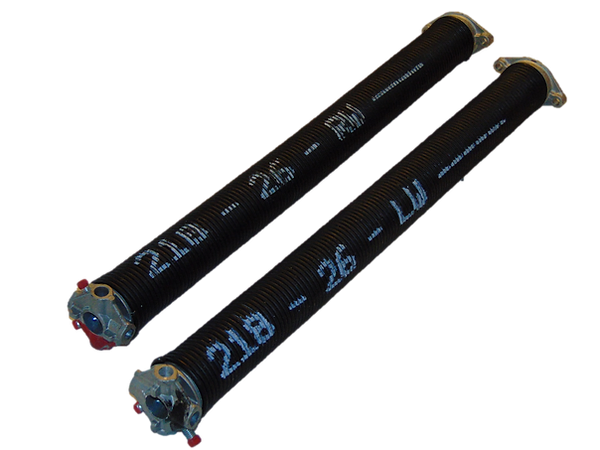

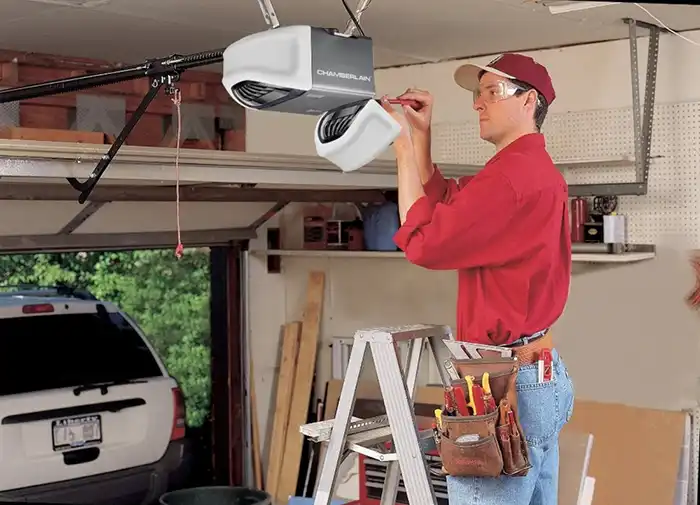
Garage Door Opener Repair

Sawtooth Garage Doors provides expert garage door opener repair services to keep your system running smoothly. Our technicians diagnose and fix issues quickly, ensuring reliable and efficient operation. We work with all major brands and use high-quality parts for lasting performance and customer satisfaction. When you need the garage door repair Eagle customers trust, call Sawtooth Garage Doors!
- Broken garage door opener repair
- Garage door opener motor repair
- Remote control programming
- Keypad repair and replacement
- Sensor alignment and repair
- Chain and belt drive repair
- Noisy garage door opener fix
- Wi-Fi garage door opener troubleshooting
- Limit switch adjustment
- Emergency garage door opener repair
“Garage Door Opener Repair Near Me”
Garage Door Opener Installation
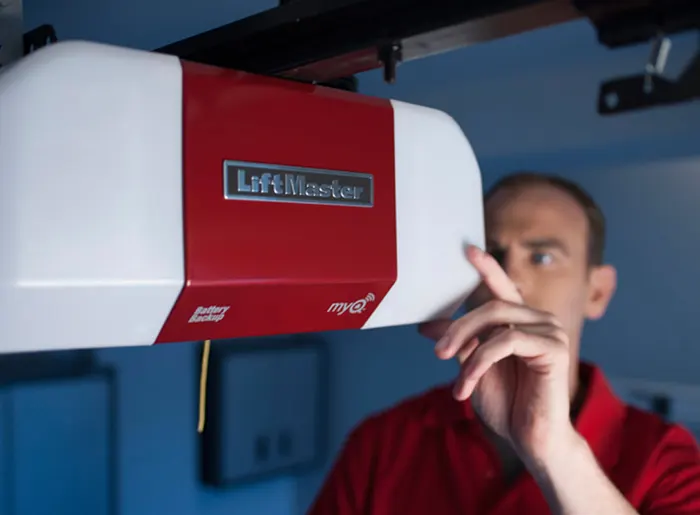
Sawtooth Garage Doors offers professional garage door opener installation services, ensuring smooth and reliable operation. Our team installs high-quality openers from top brands, tailored to your needs. We provide expert setup, programming, and testing to guarantee long-lasting performance and convenience for your home or business.
- New garage door opener installation
- Belt drive openers
- Chain drive openers
- Smart garage door opener setup
- Wi-Fi-enabled opener installation
- Keypad and remote programming
- Battery backup opener installation
- Heavy-duty garage door opener install
- Wall-mounted opener installation
- Quiet garage door opener installation
Wall Mount Garage Door Openers
Wall mount garage door openers are a great option when traditional ceiling mount openers won’t fit. Some garages don’t have enough ceiling space for an overhead opener or that space is used for storage. Either way, our team has lots of experience with wall mount openers and can help you decide if it’s a good option for you.
Battery Backup
Customers should consider a battery backup allowing openers to work in the event of power loss. This can be critical in the event of a wildfire when you have very little time to get out. We’d be happy to discuss your options for battery backup systems. Get in touch to learn more!
“Garage Door Opener Installation Eagle”

